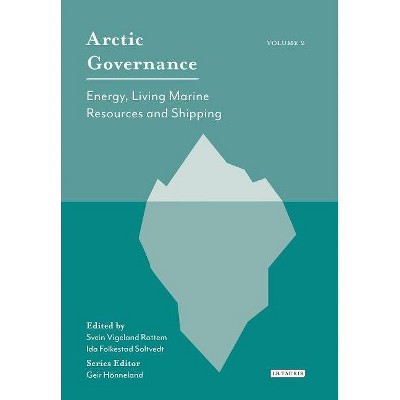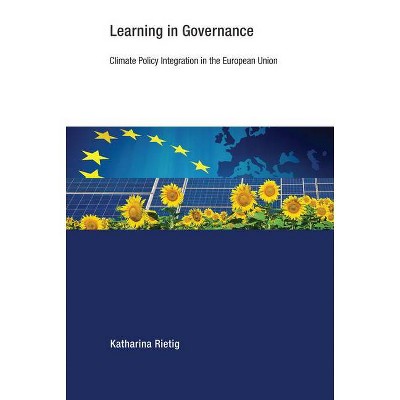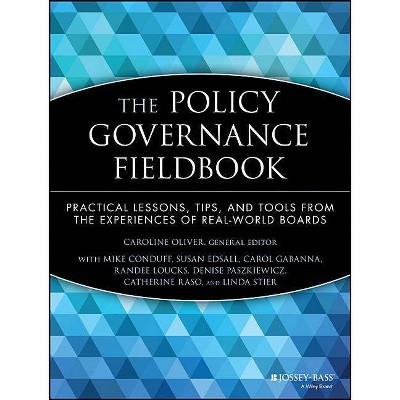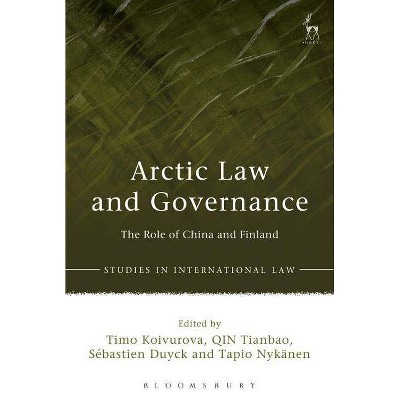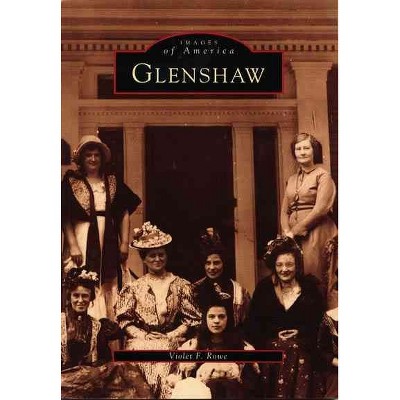Arctic governance - by Elana Wilson Rowe (Paperback)
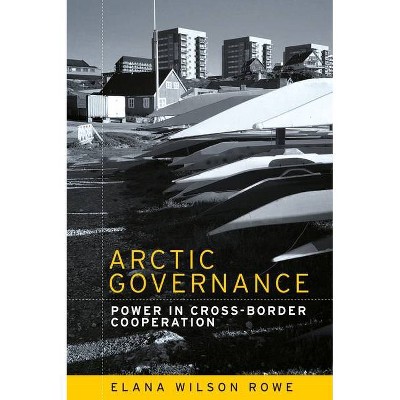
Similar Products
Products of same category from the store
AllProduct info
<p/><br></br><p><b> About the Book </b></p></br></br>This book seeks to understand better how Arctic cross- border cooperation is developed, sustained and periodically contested against a backdrop of power relations.<p/><br></br><p><b> Book Synopsis </b></p></br></br><p>This book seeks to pose and explore a question that sheds light on the contested but largely cooperative nature of Arctic governance in the post-Cold War period: how does power matter - and how has it mattered - in shaping cross-border cooperation and diplomacy in the Arctic? Each chapter functions as a window through which power relations in the Arctic are explored. Issues include<em> </em>how representing the Arctic region matters for securing preferred outcomes, how circumpolar cooperation is marked by regional hierarchies and how Arctic governance has become a global social site in its own right, replete with disciplining norms for steering diplomatic behaviour. This book draws upon Russia's role in the Arctic Council as an extended case study and examines how Arctic cross-border governance can be understood as a site of competition over the exercise of authority.</p><p/><br></br><p><b> From the Back Cover </b></p></br></br>This book seeks to pose and explore a question that sheds light on the contested but largely cooperative nature of Arctic governance in the post-Cold War period: how does power matter - and how has it mattered - in shaping cross-border cooperation and diplomacy in the Arctic? Each chapter functions as a window through which power relations in the Arctic are explored. Issues include<i> </i>how representing the Arctic region matters for securing preferred outcomes, how circumpolar cooperation is marked by regional hierarchies and how Arctic governance has become a global social site in its own right, replete with disciplining norms for steering diplomatic behaviour. This book draws upon Russia's role in the Arctic Council as an extended case study and examines how Arctic cross-border governance can be understood as a site of competition over the exercise of authority.<p/><br></br><p><b> Review Quotes </b></p></br></br><br>'In this important and beautifully written book, Wilson Rowe displays a mastery of Arctic politics and governances. <i>Arctic Governance </i>offers a rare analysis of how power actually works in an international system whose unique reputation rests on international cooperation. A masterful guide to understanding the workings of the Arctic, this is my book of the year!' Michael Bravo, University of Cambridge 'Elana Wilson Rowe offers a refreshing and awaited perspective on the issue of Arctic governance, far from conventional black and white shortcuts. By deciphering how power relations and diplomatic behaviours have evolved in the framework of Arctic cooperation, she guides us toward new approaches of what power and power relations mean in a multilateral framework based on states' social negotiation. A must read for all those who want to understand what is happening in the Arctic, a new global social site for twenty-first-century institutions.' Marlene Laruelle, George Washington University 'This book provides a timely and important illustration of how power relations have mattered for shaping cross-border cooperation and diplomacy in the post-Cold War Arctic. The volume demonstrates how the region is shaped by complex performances of power, on the basis of which hierarchies are erected not only between states but also between indigenous peoples, economic actors, science institutions and environmental NGOs. The author convincingly argues that this circumpolar complexity cannot be thoroughly analysed with great power/small state or conflict/co-operation dichotomies and instead provides the reader with a set of carefully selected concepts that do justice to how power is enacted in various levels of cross-border governance of the Arctic.' Timo Koivurova, University of Lapland 'Provides readers--both generalists and specialists--with a refreshing new perspective on circumpolar cooperation. ... Wilson Rowe turns to a broader international relations scholarship and an analytical approach.<i> ... </i>One of the most innovative and important ways Wilson Rowe's work contributes to the scholarship of Arctic governance is in her approach to the question of power. How and why do some actors find themselves in a more advantageous position for securing desired outcomes, and why do some not exercise more power? ... This is a comprehensive and worthwhile read. ... An important and valuable addition to our understanding of Arctic governance--both conceptually and substantively.' H-Diplo 'This is an important and valuable addition to our understanding of Arctic governance--both conceptually and substantively.' H-Net Reviews<br><p/><br></br><p><b> About the Author </b></p></br></br><br><strong>Elana Wilson Rowe</strong> is Senior Research Fellow at the Norwegian Institute of International Affairs<br>
Price History
Price Archive shows prices from various stores, lets you see history and find the cheapest. There is no actual sale on the website. For all support, inquiry and suggestion messages communication@pricearchive.us
